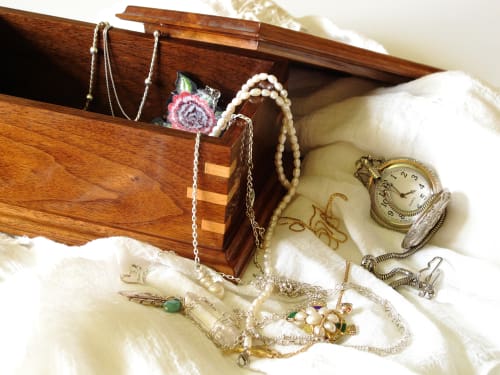Many newlyweds assume estate planning is something to think about later in life or after starting a family. However, without a proper estate plan, Nevada state law will determine how assets are distributed, which may not align with a couple’s wishes. Estate planning ensures financial security, protects assets, and prevents unnecessary legal complications.
For those who believe joint ownership or a prenuptial agreement is sufficient, it’s important to understand that estate planning goes beyond these arrangements. This article explores common myths and frequently asked questions about estate planning for newlyweds and explains why having a well-structured plan is essential.
A common misconception is that jointly owning all assets means an estate plan is unnecessary because the surviving spouse automatically inherits everything. While joint ownership can ensure a seamless transfer in many cases, there are significant risks to consider:
A comprehensive estate plan ensures that assets are protected, properly distributed, and managed in the event of incapacity.
A prenuptial agreement is designed to clarify asset distribution in case of divorce or death, but it does not address all essential estate planning concerns. Couples relying solely on a prenup may face unexpected legal challenges.
A well-structured estate plan provides security beyond what a prenuptial agreement offers by ensuring financial and medical decisions are properly managed.

Even without children, newlyweds need to consider how their assets will be handled in case of incapacity or death. Many assume their spouse will automatically inherit everything, but this is not always the case.
Creating a Nevada estate plan early in marriage helps avoid complications and ensures assets are managed according to the couple’s wishes.
Some newlyweds hesitate to start estate planning if they anticipate moving in the near future. However, delaying estate planning can leave a couple unprotected in an emergency.
Newlyweds should take proactive steps now to establish estate planning protections rather than waiting until after a move.
Estate planning is a crucial step for newlyweds looking to protect their assets, ensure financial security, and avoid legal complications. A well-structured estate plan provides protections that joint ownership and prenuptial agreements alone cannot offer.
Couples ready to take control of their financial future should schedule a consultation with Anderson, Dorn & Rader Ltd.. Their team of experienced Nevada estate planning attorneys can help create a customized plan tailored to each couple’s unique needs.
Ensuring the financial stability and care of a loved one with disabilities is a crucial concern for many families. One effective way to secure their future while preserving eligibility for essential government benefits is by setting up a special needs trust. At Anderson, Dorn & Rader Ltd. in Reno, we specialize in helping families navigate this complex process, providing peace of mind and financial security for their loved ones.
A special needs trust (SNT) is a legal arrangement designed to benefit individuals with disabilities while preserving their eligibility for government assistance programs like Supplemental Security Income (SSI) and Medicaid. These trusts are created to hold assets that can be used for the beneficiary's supplemental needs without jeopardizing their access to these critical benefits.

One of the primary reasons families consider a special needs trust is to ensure that the beneficiary remains eligible for government programs. SSI and Medicaid have strict income and asset limits; receiving a large sum of money directly can disqualify an individual from these programs. A special needs trust allows funds to be set aside for the beneficiary's use without being counted as personal assets.
This careful planning ensures that your loved one can continue to receive the essential support provided by these programs while also benefiting from the additional resources available through the trust.
When establishing a special needs trust, several factors must be taken into account to ensure it meets the legal requirements and effectively serves its purpose. Here are some key considerations:
The trustee plays a vital role in managing a special needs trust. Their responsibilities include:
Given the complexity of these duties, families often choose to work with professional trustees or fiduciary services to ensure that the trust is managed effectively and in the best interest of the beneficiary.
Setting up a special needs trust is a significant step in securing your loved one's future. At Anderson, Dorn & Rader Ltd., we understand the intricacies of these trusts and can guide you through the process with expertise and compassion. Contact us today for a personalized consultation to explore how a special needs trust can be tailored to your family's unique situation, ensuring that your loved one receives the care and support they need without compromising their eligibility for essential government benefits.
Often, when embarking on the journey of estate planning, the primary focus tends to shift towards the distribution of financial assets, real estate, and other high-value possessions after one's demise. However, personal belongings, commonly referred to as 'stuff', hold a pivotal place in this process, often embodying both monetary and sentimental value. As you step into or progress through your estate planning voyage, it's essential to ponder upon the following facets concerning your personal belongings.
Evaluating the Worth: Monetary vs Sentimental
The essence of value varies from person to person. Some possessions, like an antique timepiece, might hold substantial monetary value, while others like a family heirloom may carry sentimental worth. The type of value attached to an item dictates the strategy required for its future allocation.
Monetary Value of Personal Belongings:
Establishing the real value of items believed to be of significant worth is crucial. High-value items might necessitate insurance coverage, as standard homeowner’s or renter’s insurance policies may have limitations. Moreover, if an item demands regular maintenance, ensuring the inheritor is well-informed about its upkeep is vital to retain its value.
Sentimental Value of Personal Belongings:
Personal belongings with sentimental value can sometimes stir family disputes. Amid the grief of loss, distributing cherished mementos without clear directives can be emotionally draining. Documentation of your desires regarding the distribution of such items can help maintain harmony among loved ones, making thoughtful consideration and clear communication indispensable.
Desirability of Your Belongings:
Understanding who might cherish your belongings as you do is an essential aspect of estate planning. Engaging with potential inheritors beforehand can provide insight into their willingness, especially if the item involves storage or maintenance responsibilities.
Handling Multiple Claims:
Awareness of multiple interests in a single item is pivotal to preventing discord post your demise. It's wise to contemplate the fair division of items or balancing inheritances if a valuable item is to be inherited by one person.
Unwanted Items:
An item precious to you might not hold the same value for your heirs. Formulating a plan for such scenarios, whether it be selling, donating, or offering it to someone who appreciates it, is advisable.
Incorporating Personal Belongings in Your Estate Plan:
Several mechanisms allow the incorporation of your wishes regarding personal belongings in your estate plan:
Specific Gift: Utilizing a Last Will and Testament or a Revocable Living Trust, you can designate specific items to specific individuals. Amendments, however, require the execution of new documents.
Personal Property Memorandum: Many states acknowledge this document which lists personal belongings along with their designated inheritors. It offers a simpler amendment process compared to a Will or Trust.
The Residuary Clause: This clause addresses the distribution of any unmentioned items in your Will or Trust, ensuring a comprehensive distribution in line with your wishes.
Professional Guidance:
Having a clear inventory, understanding the worth, and knowing the desired allocation of your belongings is the foundation of an effective estate plan. Partnering with seasoned estate planning attorneys can tailor a plan reflecting your unique circumstances. Reach out to schedule a consultation, ensuring your estate plan embodies your wishes comprehensively and lawfully.
Disclaimer: The information provided in this blog is intended for general informational purposes only and should not be construed as legal advice or a substitute for obtaining professional advice from a qualified attorney or estate planning professional based on your individual situation or jurisdiction.
We extend our warmest congratulations on your new home purchase. Whether this is your first time buying a home or an upgrade/downsize, acquiring a new home is a significant event that brings about change in your life. Properly prepare for the worst by protecting your newest accomplishment. Here are three essential tips to keep in mind now that you have the keys to your new home, including important considerations for estate planning.

1. Make Sure to Update Your Address
After moving into your new home, it is crucial to update your address with the relevant authorities. Start with visiting your local United States Postal Office to obtain a form for change of address. Alternatively, you can update your address online. This step will help the postal service forward your mail to your new address.
It is also a crucial step in protecting your property to update your address with the Internal Revenue Service (IRS) by filling out Form 8822. This will ensure that you receive all important tax notices and refunds. Additionally, make sure to update your address with your local state tax agency.
2. Ensure Consistency Between Your Home Title and Estate Plan
One aspect of new homeownership that often goes overlooked is the need to align your home title with your estate planning objectives. After purchasing your new home, review the deed to confirm how the property is titled. Next, review your estate planning documents to ensure the property has been titled correctly to achieve your estate planning goals.
For instance, if your previous plan included a specific provision for the distribution of your old property, you will need to update this provision to reflect the current status. Similarly, if you have a trust-based estate plan to avoid probate, you will need to confirm that your new property is titled in the name of the trust and not in your individual name. Ensuring consistency between your home title and estate plan will help protect your assets and ensure your wishes are carried out effectively.
3. Review Your Life Insurance Policy and Beneficiary Designations
If you have a mortgage payment to make on your new home, it's likely you'll have a large monthly expense to pay off each month. To safeguard your loved ones, it is important to review your life insurance coverage. Ensure you have adequate life insurance coverage to address the mortgage payment in the event of your passing, particularly if you have a surviving spouse or children who are likely to remain in the home. Even if they decide not to reside in the property, life insurance can offer valuable resources during a potentially emotionally difficult period. Even if they choose not to stay in the home, life insurance can provide valuable assets during what can be an emotionally challenging time.
It's also a good idea to review your beneficiary designations. Life changes can happen quickly, and this may be overlooked. If your designations don't match up with the rest of your estate plan, you might inadvertently disinherit a family member or have the money go directly to an individual without any guidance.
Finally, with your new home comes the need for homeowner's insurance. Contact your insurance agent to confirm that you are receiving all eligible discounts. Many insurance providers offer package discounts when you combine services. By already having car insurance with the same company as your homeowner's insurance, you may qualify for a lower rate compared to purchasing each policy separately. Additionally, homeowners often receive discounts that renters do not.
We understand that buying a new home is a significant milestone, and we are here to assist you. If you need help aligning your new purchase with your estate planning goals, contact us today. We can ensure that your new home and estate planning are aligned to achieve your objectives, including the important aspect of estate planning for homeowners.
If you have children or young loved ones you hold close, you can make a large impact on their development by sharing knowledge to help them succeed in life. January is National Mentoring Month, and there’s no better time to help mentees form goals that will put them ahead of the curve.

Usually when estate planning is mentioned, we default to the notion that it only relates to a person passing, or when someone is preparing to transfer assets to loved ones. While these scenarios are definitely part of estate planning, it also involves the development of good habits throughout your whole adult life. This is where mentoring comes in. Teaching your children and other young family members the value of financial and estate planning now can help them in the long run. Here are some ways you can implement teachings and set them up for success:
Start by teaching them the importance of setting goals and how to set them for themselves. For instance, if they want to start a business or pay for college in the future, help them set up a savings or investment account and incentivize regular deposits by matching a portion of their contributions. If they want to give to a charitable cause, match their donations to encourage them. By helping them achieve their goals through their own efforts, they will learn valuable lessons and benefit from the experience. Share your own experiences and lessons learned when pursuing similar goals to further aid in their success.
For example, if you plan to pass on a family cabin to your children, give them information on how to maintain it and create a schedule for taking care of it. Share your knowledge and experience you gained caring for it growing up. If you and your siblings were responsible for the cabin growing up, teach them the best ways you found to work together as a team to care for the property. Along with providing practical information, share personal stories and memories about your own experiences at the cabin to communicate its importance and why you want them to have similar positive experiences once it’s passed down to the next generation.
Share the lessons you learned from your parents about saving money or contributing to good causes. If you have developed money management skills that have helped you build a significant estate and benefit your family and others, invest time in teaching those skills to your mentee. Similarly, if you have found effective ways to evaluate the credibility of charities and make responsible donations, share that knowledge with your mentee so they can make informed decisions. Emphasize to your mentee how these skills have positively impacted your life and the lives of others to stress their importance and the value of learning them.
Mentoring in a creative way allows you to pass on more than just your assets to your loved ones. You can also share your core values, skills and experiences gained from putting them into practice. If you wish to leave a lasting legacy for your family and loved ones by creating or updating your life plan, reach out to Anderson, Dorn & Rader for help.
The days are flying by, and before you know it, the New Year will be here. Plan ahead and fine-tune your gift giving before the holiday chaos ensues. It’s possible to make annual, medical, and educational exclusion gifts that aren’t technically considered as such under federal gift tax law.

Annual exclusion gifts are one type that you can give that do not trigger federal gift tax. For the year 2022, the gift tax threshold is $16,000 per person. That is expected to increase to $17,000 in 2023.
With annual exclusion gifts, assets amounting to $16,000 or less that are given to an individual within the calendar year are not considered gifts (for tax purposes at least – the recipients will still be thankful!).
Hypothetically, that means you can gift assets amounting to $16,000 or less to as many individuals you’d like up to December 31st of this year, then follow that gifting criteria again for the same recipients on January 1st, 2023 without having to file them under federal gift tax law.
Some sources may indicate that married couples are able to effectively double the annual exclusion amount ($32,000 per calendar year). Even if a married couple abides by this threshold, in some cases they may still be required to file a gift tax return. We recommend consulting our estate planning services to see if you need to report these “split gifts”, as they’re referred to.
Qualified medical exclusion payments / gifts are another type of transfer that aren’t considered ‘gifts’ under federal tax law.
To take advantage of medical exclusions, one must make a payment directly to a healthcare institution or medical insurance provider. Generally, this exclusion can be applied to any medical expense qualifying for a deduction under federal income tax guidelines.
For instance, you could have given $20,000 to the hospital that your grandchild was treated in for an emergency procedure earlier in the year, then give the same grandchild up to an additional $16,000 amount before December 31st, 2022. You could even go as far as to gift another $16,000 on January 1st, 2023. Even in this extreme example, these gifts would not trigger the federal gift tax threshold, as long as they are accounted for and transferred with the exclusions in mind.
An important note: the medical exclusion gift / payment must be made directly to the medical institution or medical insurance provider, not the individual receiving the medical care or insurance money. Even if the payment is “earmarked”, the patient cannot touch it, or the federal tax law will kick in and consider it a gift.
Gifted assets that meet the criteria of educational exclusions are another type of transfer that aren’t considered ‘gifts’ under federal tax law. This includes qualifying payments made directly to both domestic and foreign institutions.
So hypothetically, you could pay for your grandchild’s emergency procedure (referenced above), pay for their educational tuition amounting to $25,000, give them an additional $16,000 by December 31st, then give them $16,000 on January 1st, 2023. That’d be one thankful grandchild, and you likely wouldn’t trigger any federal gift tax returns.
Remember two things before initiating an educational exclusion gift: First, the payment must be made directly to the educational institution, not to the individual enrolled. Next, the payment can only be put towards tuition. Not supplies, books, dorm payments, or other related educational expenses.
It can be exciting to gift money and property to loved ones. After all, they will carry on your legacy in the future. While it’s tempting to simply transfer it to the recipient’s bank account, consider the guidelines surrounding annual, medical, and educational exclusion gifts to avoid the burden of taxes and maximize your financial picture. For assistance in doing so, contact the experienced Reno estate planning attorneys at Anderson, Dorn & Rader. We are happy to walk you through the process to make it enjoyable for all parties involved.
With roughly 40 percent of U.S. adults suffering from a mental illness, it’s time to remove the stigma surrounding the topic. With greater awareness, there is greater opportunity to ensure that those affected by mental illness receive the help or treatment that they need, not just now, but in the future as well. Estate planning for someone with a mental illness will give you peace of mind that your loved one will be well taken care of in any unforeseen event.
The odds that you or somebody in your family is living with a mental health condition are 2 in 5. Rather than dismiss these issues because they are uncomfortable, we recommend being proactive about these challenges so that you’re prepared for whatever life brings your way. The best way to do this is with the help of an incapacity and estate planning attorney who will be able to draft a trust that covers all your bases.
Nearly 50 Million Americans Suffer from Mental Illness
 Saying that America is dealing with a mental health crisis is not an exaggeration. According to the National Alliance on Mental Illness, approximately 40 percent of US adults experience mental illness, which is an increase of 20 percent from the year 2020. Additionally, 1 in 20 who experience serious mental illness, and 17 percent of American youth experience a mental health disorder.
Saying that America is dealing with a mental health crisis is not an exaggeration. According to the National Alliance on Mental Illness, approximately 40 percent of US adults experience mental illness, which is an increase of 20 percent from the year 2020. Additionally, 1 in 20 who experience serious mental illness, and 17 percent of American youth experience a mental health disorder.
The mental health crisis has worsened during the coronavirus pandemic. Loneliness and isolation are fueling increases in anxiety, depression, and thoughts of suicide and self-harm, reports Mental Health America. More people are seeking mental health screening and treatment, but around 23 percent of Americans with mental illness are still not receiving the services they need.
Improvement starts with acknowledging that there is a problem. Talking to a healthcare professional about mental health struggles and treatment options leads to better outcomes. One improved outcome can be creating an estate plan that takes into account your own, or a family member’s, mental health.
Your Mental Health and Your Estate Plan
 Every estate plan should be tailored to the individual’s needs and their unique family dynamics. A number of estate planning documents are available to address concerns about your mental health. Chief among such concerns is the possibility that, at some point, you may be unable to manage your own affairs. To prepare for that contingency, consider having the following documents in place:
Every estate plan should be tailored to the individual’s needs and their unique family dynamics. A number of estate planning documents are available to address concerns about your mental health. Chief among such concerns is the possibility that, at some point, you may be unable to manage your own affairs. To prepare for that contingency, consider having the following documents in place:
Importantly, for these documents to have legal authority, you must have mental capacity when you sign them. To ensure capacity, you may want to obtain a professional opinion from a licensed mental health provider stating that you are of sound mind and understand the meaning and effect of the documents you are signing. Alleging lack of capacity is a common basis for contesting an estate plan.
In addition, if you are entrusting somebody with power of attorney authority, and that person has their own mental health concerns, you should discuss the issue with your family as well as your estate planning lawyer.
Your Beneficiaries’ Mental Health
Having beneficiaries who suffer from mental illness presents a different estate planning challenge. You must pass your legacy to them in a way that serves their best interests. Discretionary trusts and supplemental needs trusts are two ways you can look out for a mentally ill loved one even after you are gone.
 There is a significant difference between suffering from a severe mental illness, such as bipolar disorder or schizophrenia, and a more minor issue such as anxiety or depression. Some people’s mental health issues can come and go over the course of their lifetime. Others’ illnesses are prolonged or recurrent. In some cases, a person may be genetically predisposed to mental illness that has not yet manifested. Proper proactive estate planning can protect you and your loved ones from whatever type of mental disorder may be of concern to you.
There is a significant difference between suffering from a severe mental illness, such as bipolar disorder or schizophrenia, and a more minor issue such as anxiety or depression. Some people’s mental health issues can come and go over the course of their lifetime. Others’ illnesses are prolonged or recurrent. In some cases, a person may be genetically predisposed to mental illness that has not yet manifested. Proper proactive estate planning can protect you and your loved ones from whatever type of mental disorder may be of concern to you.
These are some of the factors to consider when making estate planning decisions based on mental illness in your family. Every individual and every family is unique. Your estate plan should reflect what you know now and be updated to reflect changes in your life and the lives of your family members. Contact us to learn how mental health considerations can fit into your estate plan.
Estate planning is a sensitive subject and it can be even more sensitive when the issue of mental health is involved. If you need to set up an estate plan, or revise an existing estate plan, around mental health concerns, we are here to help. Please contact our office to set up an appointment with an estate planning attorney.
Estate plans are more than your monetary net worth. Categories of your estate can include real estate, pets, possessions and all other property you own. Some people forget how priceless personal property, such as family heirlooms and keepsakes, can be to those you leave behind.
It is important to work out what will happen to these valuable items after your death by creating an estate plan.
Heirlooms have been passed down to family members for generations. These items can vary in monetary value, but the memories attached to them are copious, giving them an emotional and sentimental value that shouldn’t be discarded or auctioned after your passing.
Keepsakes are slightly different from heirlooms because they apply to specific items you owned during your life. These items can be anything from cutlery sets, furniture, or jewelry that you left behind for your family. While these valuable items only have been passed down once, they have nostalgia your family wouldn’t want to lose.

Family members can have different values associated with certain heirlooms and keepsakes. It can be crucial to talk with each family member about their feelings and expectations towards certain items in advance. This common knowledge will help your family avoid unnecessary fighting for heirlooms or keepsakes after your death.
It is a good idea to decide if you need to have your family heirlooms or keepsakes appraised. By doing this, you provide your heirs with the necessary documentation to understand the value of each object passed down to them. Plus, you might realize you want to get some of these items insured due to their worth. Handling this before you pass will make it easier for your heirs to go through the mourning process and avoid unnecessary externalities.

There is no proper way to distribute these valuable and irreplaceable items after your death. Of course, these valuables could end up lost or undervalued if they end up in the wrong hands when there is no plan in place for family heirlooms and keepsakes.
Here are some ways to distribute these precious items to your heirs.
Some people prefer to equally distribute heirlooms and keepsakes to their heirs by focusing on each items' monetary value. An estates planning attorney can offer you guidance when understanding the liquidity of each family heirloom and keepsake.
It is important to note more than two of your heirs may desire the same heirloom or keepsake. You can resolve this dilemma before you pass by creating a personal property memorandum. This document is a chance for you to explicitly state your wishes and avoid any conflict that may come after your death.
One benefit to this type of inheritance planning is that a property personal memorandum is referred to as your last will and identifies who is to receive said property. Also, you don't need to execute a new will or amend your trust if you decide to make modifications to which heirs receive these family heirlooms and keepsakes.
You may prefer to gift special items to your heirs before passing away. Doing this could be a consideration if you find enjoyment in seeing how your family reacts to receiving their heirloom or keepsake.
Of course, you don't want to forget the gift tax you may incur after giving any items to your heirs while alive. Furthermore, you may want to consider if you should factor them into what share of your estate your heirs receive after your death depending on their value.
Anderson Dorn and Rader’s attorneys have the expertise and knowledge to help you create an estate plan that considers all your assets. Family heirlooms and keepsakes are just one piece of the puzzle. Define all your wishes for what your heirs receive with an estate plan to help avoid conflict between your heirs later on.
Many Northern Nevadans know the dangers that come along with this time of year. A 2019 statistic showed that 17% of all accidents happen during winter conditions, highlighting an increased chance for individuals to experience an accident due to extreme weather changes. Ultimately, no matter how long you’ve lived in the region, less sunlight, alongside rain, snow, and black ice creates challenges for anyone driving on the road. While no one ever thinks they will fall victim to an accident, knowing what to do after a fender bender is crucial to ensuring a headache-free experience.

Following these guidelines can help you document the incident calmly and efficiently.
While many people believe there is no reason to immediately report minor accidents, following these steps avoids unnecessary complications and significant penalties down the road.

If an accident occurs making you unable to speak or communicate decisions clearly, you will need to have someone talk to medical professionals on your behalf. This should be a previously planned and trusted individual who would be deemed your medical power of attorney. This person will arrange treatment with doctors until you regain consciousness, so it's crucial you've assigned this power to someone. Your medical power of attorney will expedite medical treatment in the case of an emergency. Furthermore, your medical power of attorney should know where to obtain a copy of this documentation to help expedite treatment.
Opting for minimum coverage can be detrimental to your savings and property in the event of a serious lawsuit. You and your car must be fully covered to prevent this from happening. Plus, you should speak to your insurance broker to find out if umbrella insurance makes sense for you. Umbrella insurance is a low-cost way to gain extra liability coverage and protect yourself from damages that may exceed the limits of your car insurance. Umbrella insurance ensures you have access to a bigger pool of money in the event of a car crash lawsuit against you, protecting your savings and future prosperity.
After a car accident with significant property damages and medical injuries, it may feel necessary to protect your assets from excessive lawsuit demands. You may attempt to do this by transferring funds to friends and family, but be careful because this is against the law in some states. These transfers used to protect assets won’t be ignored by the courts. If considered fraudulent, court judges have the full right and power to reverse transfers. This means that these assets can be obtained by the party in the event of a successful lawsuit against you even after being gifted to a friend or family member.
Revocable trusts are used to protect your assets and trust from creditors and lawsuits after your death. Unfortunately, while some people believe that these trusts protect their assets during their life, this is a misconception and not their design. These trusts fail to completely protect your assets because you have complete control of all assets placed in a revocable trust. Your ability to control these trusts means a judge can order you to revoke the trust to pay creditors and lawsuit judgments.

However, with the guidance of an experienced asset protection and estate planning attorney, you can use properly designed strategies to enhance protection for your assets and property. That means taking the time to sit down with an experienced attorney well before an accident occurs offers you the best chance to maximize asset protection for your estates.
SPEAK WITH AN ESTATE PLANNING ATTORNEY
Contact us today to see how AD&R can provide you with the finest legacy and wealth planning advice Northern Nevada has to offer. We help get you the proper insurance and design estate planning to help you overcome unexpected lawsuits after an accident. Give us a call today so that we can help prepare you for the perils winter might bring.
To date, twenty-four states have enacted or introduced model legislation referred to as the Uniform Voidable Transactions Act (Formerly Uniform Fraudulent Transfer Act). The full text is available on the website of the Uniform Law Commission at https://www.uniformlaws.org/committees/community-home?CommunityKey=64ee1ccc-a3ae-4a5e-a18f-a5ba8206bf49.
 There are many different trusts that can be used to satisfy varying objectives. If you are concerned about the possibility of future creditors seeking to attach your assets, there is a particular type of trust that you should consider. The legal name of this trust structure is called a self-settled spendthrift trust. Among estate planning practitioners in Nevada, it is alternately referred to as a Nevada Asset Protection Trust.
There are many different trusts that can be used to satisfy varying objectives. If you are concerned about the possibility of future creditors seeking to attach your assets, there is a particular type of trust that you should consider. The legal name of this trust structure is called a self-settled spendthrift trust. Among estate planning practitioners in Nevada, it is alternately referred to as a Nevada Asset Protection Trust.
This type of trust can protect a number of different assets, including real estate, bank and brokerage accounts, personal belongings, business holdings, and other types of assets from future creditors. It may also be used as a prenuptial planning device to protect assets from spousal claims in the event of a future divorce. However, it should be noted that you cannot create a self-settled asset protection trust and convey assets into it to protect assets from creditors that already have a judgment against you.
Up until relatively recently, self-settled asset protection trusts were not legal in the vast majority of states. However, more and more states have laws on the books that allow for the creation of these trusts. Our office is in Reno, Nevada, and our state of Nevada is one of the states that does allow self-settled asset protection trusts. For your information, the other states that currently allow these trusts in one form or another are Alaska, Delaware, Hawaii, Mississippi, Missouri, New Hampshire, Ohio, Rhode Island, South Dakota, Tennessee, Utah, Virginia, West Virginia, and Wyoming.
We should point out the fact that you do not necessarily have to reside in the state where the self-settled spendthrift trust is going to be established. However, your will need to designate a trustee of the trust that resides in the state in which you are creating the trust. In addition, it is a good idea to relocate your assets to that state. This is relatively easy to do with some types of assets, like bank accounts and marketable securities. On the other hand, it is impossible to transfer real property to another state. For real property, it is recommended that you transfer the interest into a limited-liability company organized in the state in which you are creating the trust, and then transfer the membership interest in the limited-liability company to the trust. Then the trust will then own an interest in intangible personal property located in the state of the trust's creation.
When you decide to establish a self-settled or domestic asset protection trust, you are considered to be the grantor or settlor of the trust. You convey assets that you would like to protect from future creditors into the trust. It is important to understand the fact that this is an irrevocable trust, so the act of transferring property into the trust is permanent. You cannot change your mind later and take back personal possession of these assets.
The trust administrator is called the trustee, and generally speaking, the grantor of a self-settled asset protection trust would be prohibited from acting as the trustee. You would utilize an individual that you know or a professional fiduciary like an attorney, certified public accountant or the trust section of a bank or a trust company to handle the trust administration chores. The person or entity that is acting as the trustee must physically reside in the state where the trust is being created.
Once you convey assets into the domestic asset protection trust, you are not left completely out in the cold with regard to the utilization of assets in the trust. The trustee can distribute assets from the trust to you in accordance with the terms of the trust agreement. It would also be possible for the trust declaration to give the trustee the discretionary power to distribute assets to members of your family.
We should point out the fact that the trust will protect assets from future creditors, but sometimes there is a waiting period depending on the laws of the state in question. In Nevada, waiting period is two years, which is among the shortest of all the jurisdictions that recognize these trusts. So, by way of example, if you convey assets into a Nevada Asset Protection Trust today, and there is a judgment against you eighteen months from now, the assets may be fair game.
This is a relatively brief explanation of one of the many tools in the estate planning toolkit. Each case is different, and this is why personalized attention is very important. When you work with our firm, we will gain understanding of your needs, make recommendations, and help you put the ideal estate plan in place.
If you would like to schedule a consultation right now, we can be reached by phone at 775-823-9455. We are also holding a series of Webinars over the coming weeks, and you can learn a great deal about many different estate planning topics if you attend one of these information sessions.
They are free to attend, but we do ask that you register in advance to reserve your seat, because space is limited. You can check out the schedule and obtain registration information if you click the following link: Reno Estate Planning Webinars.
 When it comes to estate planning there are several types of tools you can use, depending on your circumstances. One such estate planning tool to protect your estates beneficiaries from future potential family law matters, or other creditor situations, it to leave their inheritance in a Trust Share.
When it comes to estate planning there are several types of tools you can use, depending on your circumstances. One such estate planning tool to protect your estates beneficiaries from future potential family law matters, or other creditor situations, it to leave their inheritance in a Trust Share.
Purpose of Trust Shares
A Trust Share can be created for each beneficiary of your estate after an individual’s death, or the second death of a joint couple. The Trust Share is a legal entity that has its own tax identification number. A Trust Share prevents the trust beneficiary from commingling assets with a spouse directly because the assets are held in Trust Share. A Trust Share prevents an inheritance from being transmuted into a spouse’s community property, which could be lost in a subsequent family law matter. A Trust Share provides for marital harmony after the death of a loved one because it eliminates the conversation between a beneficiary and their spouse on whether they are going to deposit an inheritance into a joint account because the Trust Share doesn’t allow that as an option.
The Trust Share also provides flexibility with trust asset management. Typically, if a beneficiary is responsible with financial assets the creator of the Trust Share will allow them to be their own Trustee and manage the trust funds for their own benefit. Generally, the distribution standard for a Trust Share is for health, education, maintenance, and support. If a beneficiary is not responsible with financial asset a safeguard can be put in place with an Independent Trustee that can be a responsible family member or Professional Trustee. This creates checks and balances, so assets are not wasted with frivolous spending.
Trust Shares also allow you to set a minimum age of when a beneficiary such as a child or grandchild can serve as their own Trustee. We have found with experience that the age of 25 or 30 is much better than 21 given work experience and life experience.
Trust shares can even have a re-write power when it comes to looking at how assets will be passed to grandchildren. You could leave a Trust Share to your child and provide them with a re-write power known as a Limited Power of Appointment to decide how the assets from their Trust Share will be divided at their death among their heirs.
Consult with an Estate Planning Professional
While Estate planning can be complicated, it is essential in protecting yourself and your loved one’s financial future. Give us a call at 775-823-9455 to make a free consultation with an estate planning attorney and see how we can help protect your legacy and your family.
Authored by: Aaron Squires
 As Reno asset protection attorneys, we emphasize the fact that relatively frequent estate plan revisions may be necessary. There are different events that occur throughout society as a whole that can render your existing estate plan in need of adjustments. At the top of this list would be changes to the tax code that impact the estate tax and/or the gift tax.
As Reno asset protection attorneys, we emphasize the fact that relatively frequent estate plan revisions may be necessary. There are different events that occur throughout society as a whole that can render your existing estate plan in need of adjustments. At the top of this list would be changes to the tax code that impact the estate tax and/or the gift tax.
One of the things that commonly takes place in the lives of individuals is a change in marital status. As we all know, many first marriages end in divorce, and most people who get divorced eventually remarry. If you decide that you would like to get remarried after having been divorced, you may want to consider entering into a prenuptial agreement.
Of course, everyone who remarries feels as though they have found the right person, or they would not be getting married. However, some 60 percent of second marriages do not endure, and over 70 percent of third marriages end in divorce. As you can see from the statistics, it is more likely than not that your second or third marriage will not last. Is it prudent to go forward without a prenuptial agreement given these figures?
Given these statistics, you should make sure that your children from previous marriages are provided for regardless of what takes place in the future. You can provide for your new spouse while ensuring the future well-being of your children if you plan ahead in an intelligent and informed manner. This is often done through the creation of a trust called a qualified terminable interest property trust (QTIP).
When you establish this type of trust, your spouse would be the first beneficiary, and you name your children as the secondary beneficiaries. You fund the trust with property that you eventually want to pass along to your children, but your spouse could potentially utilize the property while he or she is still living. For example, if you convey your home into the trust, your spouse could still live in it.
If there are income producing assets in the trust, you could empower the trustee to distribute this income to your spouse throughout the rest of his or her life. Your surviving spouse would be well taken care of, but the terms of the trust would be set in stone with regard to the eventual transfer of the assets to your children. After the passing of your spouse, your secondary beneficiaries would assume ownership of assets that remain in the qualified terminable interest property trust.
As we stated in the opening, changes in tax laws could necessitate the need for an estate plan update. On another level, if you experience extraordinary financial success over the years, you may suddenly be faced with estate tax exposure. If you originally created your estate plan when your assets did not exceed the amount of the estate tax exclusion, you would definitely need to discuss death tax efficiency strategies with an estate planning attorney.
For the rest of 2018, the estate tax exclusion stands at $11.2 million, and the maximum rate of the tax is 40 percent. This means that the first $11.2 million can pass to your heirs free of taxation, and anything that exceeds this amount is subject to the death tax and its rather high 40 percent rate.
There are a number of different strategies that can be implemented to ease the burden. One possibility is the creation of a qualified personal residence trust. The way that it works is you convey your home into the trust, and when you do this, it is no longer part of your estate. However, there is a gift tax that is unified with the estate tax, so when the beneficiary assumes ownership of the home after the expiration of the term, the gift tax would be applicable.
On the surface, it may seem as though there is no benefit from a tax perspective, but there is a catch. You can continue to live in the home as usual after you convey it into the qualified personal residence trust. This interim is called the retained income period.
For the purposes of this example, let’s say that you remain in the home for 10 years. No one would purchase a home at full market value if they could not occupy it for a decade. The Internal Revenue Service take this into account when the taxable value of the gift is being calculated. At the end of the day, the taxable value of the gift will be far less than the actual value of the home.
We are holding a number of free Webinars over the coming weeks, and you can learn a lot if you attend one of these information sessions. Click this link to see the schedule and follow the simple directions to reserve your seat. We encourage you to act now, because space is limited.
Most people would agree that it is not easy to reach your financial goals and accumulate a significant store of wealth. For those fortunate enough to achieve this objective, the focus should shift to balancing wealth accumulation with various asset protection techniques.
Various reports have concluded that the number and size of lawsuits brought against wealthy individuals is on the rise. Unfortunately, most people fail to address this need until after a liability already exists. Unfortunately, most asset protection opportunities are no longer available at such time because of fraudulent conveyance laws.
When it comes to asset protection planning there are a number of different strategies that should be considered. The best techniques to utilize to accomplish this objective vary considerably on a case-by-case basis.
Many people use Nevada limited-liability companies for asset protection. Nevada has some of the best laws in the country designed to protect a member’s interest from attachment by his or her creditors. These entities can also provide significant tax advantages as interests in a limited-liability company can be transferred among the family members at a discount for gift tax purposes.
Other people use a Nevada asset protection trust to protect their assets. Nevada is one of a limited number of states that allow a person to create an asset protection trust for oneself. Nevada’s asset protection trust law became effective on October 1, 1999, yet many doctors, business owners, corporate executives and other high net worth individuals still have not taken advantage of this opportunity.
Assets transferred to a Nevada asset protection trust are generally protected from the transferor’s creditors two years after the transfer to the trust. Nevada law is superior to the laws of many other domestic asset protection jurisdictions in this regard since the required waiting period in most of the other jurisdictions is four years. The trust instrument must be irrevocable in order to provide the desired protection. However, the trust may be structured so that it can be modified by the trust creator to change the beneficiaries at the trust creator’s death. In this way a Nevada asset protection trust can be designed to be very flexible despite being irrevocable.
Some people will combine the Nevada asset protection trust with one or more Nevada limited- liability companies in order to provide two layers of protection. Used in combination these strategies can make it very undesirable for a creditor to pursue the assets contained within these structures.
To provide some sound information to people here in northern Nevada we have prepared a number of free special reports. These reports are available to you for download at any time, and one of the reports covers asset protection strategies.
If you are interested in protecting what you have earned from creditors, claimants, and former spouses you may want to access the information that is contained within this report. To access your copy click this link: Free Nevada Asset Protection Report.
If once you have read the report you have questions or would like to schedule a free consultation, we invite you to contact our firm. We can be reached by phone at (775) 823-9455.
To learn more about living trust lawyers, get in touch with the trust attorneys at Anderson, Dorn & Rader. Call (775) 823-9455 or fill out the form below to get started.




